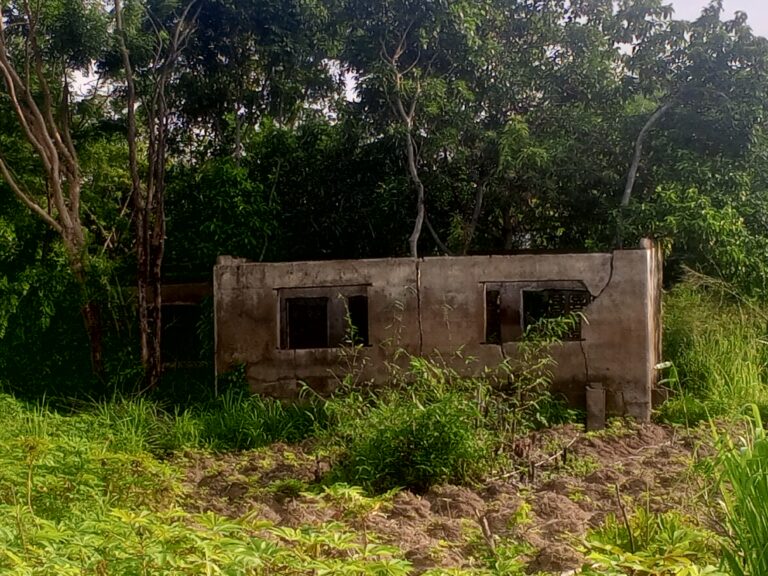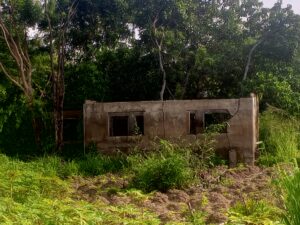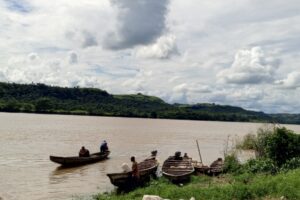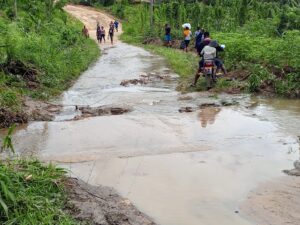Cross River community widows: Our wars over but wounds yet to heal
The year 2020 was a glorious one for the people of Bahumonu in Abi Local Government Area of Cross River because it marked the end of a 15-year communal war among four communities in the Bahumonu nation. Like many other crisis that had bedeviled Cross River communities in the past the wars between Ediba and […]

buzu
The year 2020 was a glorious one for the people of Bahumonu in Abi Local Government Area of Cross River because it marked the end of a 15-year communal war among four communities in the Bahumonu nation.
Like many other crisis that had bedeviled Cross River communities in the past the wars between Ediba and Usumutong communities and Ebom versus Ebijakara were mainly a tussle over land, though there were other remote causes.
While the wars raged from around 2005 with attendant destruction of lives and property worth billions of naira, they left in their trail widows, orphans, exacerbating poverty in the warring communities.
For instance, as a result of the war indigenes of Ebijakara community were sacked from their land and have not returned 4 years after the war ended.
- Police arrest 12 suspected kidnappers in Nasarawa
- Intellectual property: 75 patent certificates commercialised – FG
Community Secondary School, Usumutong, that was destroyed is still in a shadow of itself, with its destroyed staff quarters overgrown with weeds; Ediba and Ebom communities also suffered various degrees of destruction.
One of the survivors of the conflict was Mrs Janet Ekpe from Ebijakara who lost her husband and every property they owned in the war.
Narrating her ordeal, Ekpe said she and her children suffered so much during the conflict, adding that though she was happy that the war is over she was still in pain as her wounds were yet to heal.
“Apart from losing my husband to the war the crisis prevented my children from going to school, our house was destroyed and we were sacked from our community.
“As we speak my children are scattered all over the nation because I cannot take care of them.
“I survive by taking small farmland on lease which has not been easy. I have cried and begged just to get something to survive on.
“This is why I plead with the state government to help us go back to our homeland and to facilitate the construction of houses. We are still suffering though the war is over,” she said.
For Mr Nkam Igiri, a businessman from Ebom, the place where he did his business and lived was burnt down during the war.
“I am happy that the war ended 4 years ago but since it did, we have not really seen much progress in the communities. Some of us that lost everything including our means of livelihood are still struggling to put food on our tables and send our children to school. The government needs to help us,” he told NAN.
A visit by NAN to Bahumonu in Otumosa and some of the communities recuperating from the years of carnage showed that they still lack basic amenities such as electricity, good telecommunication network and roads.

“At this point, we appeal to the state government to help us resolve some of the lingering issues that are hindering total peace,” he said.
Although war-torn for about 15 years, the four communities have been relatively peaceful after youths miraculously dropped arms in 2020.
The markets now operate in ramshackle tents left after the fighting. People move freely.
Speaking on the present situation, Mr Earnest Eteng, Chairman, Bahumonu Peace and Development Union said things were getting better, while thanking the youths for their doggedness in maintaining the peace that was achieved in 2020.
According to him, the youths were always the first to visit any scene where there was misunderstanding capable of resulting to violence, even without the elders knowing, they have done this very well ensuring that peace is sustained.
Eteng appealed to indigenes of the communities concerned to fully embrace peace, so that the state government could come to their rescue in the area of infrastructural development which was highly needed in the communities.
“The state government has accepted to help us but they said we must be ready to sign the peace agreement stating where each of the projects will be.
“That was what we were told in 2021 when the committee set up by former Gov. Ben Ayade came on a fact finding mission in the Bahumonu nation, that position has not changed, he stated.
But Mr Collins Bassey, Community Relation Officer in charge of Abi LGA for Gov. Bassey Otu, says the state has done a lot to ensure peace in Bahumonu.
He said schools, roads and other infrastructure in the community were in bad shape but the government was poised to do more within the shortest possible time.
Bassey said the reconstruction of Bahumonu ring road was captured in the 2024 budget, adding that if there was no peace there was be no meaningful development.

“The people lost so much, families lost properties and loved ones in the war so, I will not rest but continue to remind the governor of his promises to the Bahumonu people because with Peace there’s nothing we cannot achieve.

The war in Bahumonu may have ended but it is clear that the peace being enjoyed among the four communities today is fragile.
While many of the indigenes are still calmly aggrieved but recuperating from the emotional wounds and trauma, the issues that caused the war are still yet to be fully resolved four years after.
This is the time for the state government to do more than just rhetoric by picking up the report of the Ndoma Egbe Committee set up in 2021 and commence implementation of its recommendations.
The Bahumonu nation is a cluster of nine communities that are well-known for their agrarian capabilities, especially in rice production.
This should be developed in addition to other necessary basic amenities, particularly in this era of nationwide food insecurity.
The natives should learn from the devastation that there is no gain in war. As they have found out, destruction is easy while rebuilding is expensive. (NANFeatures)

